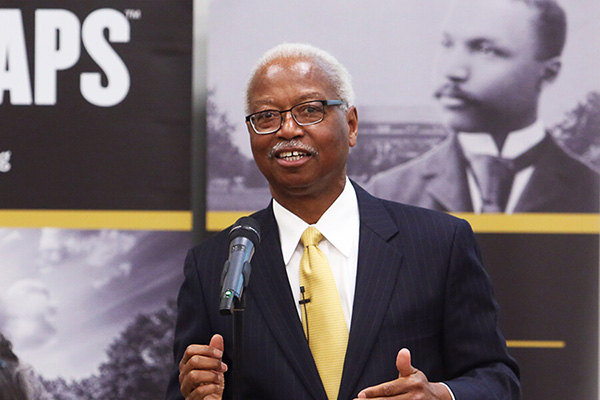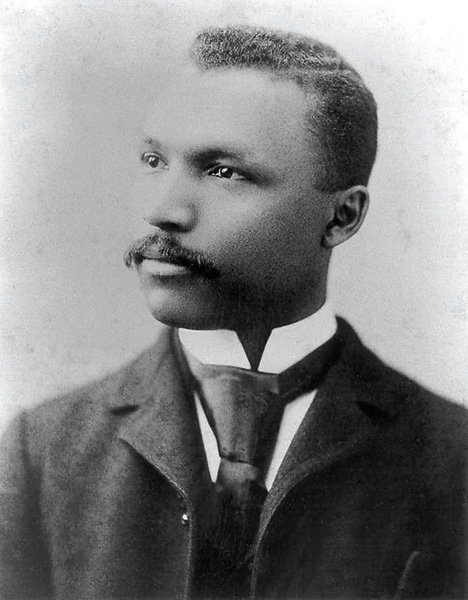Celebrating David Robert Lewis
Powers honors fellow CE graduate

Mamon Powers (BSCE '70, HDR '14) speaking at Purdue
One distinguished Purdue civil engineering graduate honored another when Mamon Powers Jr. (BSCE ’70, HDR ’14) visited campus in February 2019.
Powers appeared as part of a Lyles School of Civil Engineering celebration honoring David Robert Lewis, who became the University’s first African American graduate when he earned a civil engineering degree in 1894. Speaking at the David Robert Lewis Lecture, Powers gave a talk called “The Path is the Same, but the Journey is Different.”
Powers, who received an honorary doctorate from the University in 2014, is chairman and CEO of Powers & Sons Construction Co., a 50-year-old firm that serves Indiana and Illinois. A Purdue Board of Trustees member from 1996 to 2011, Powers is a College of Engineering Distinguished Engineering Alumni/Alumnae Award winner. He also has received the Civil Engineering Alumni Achievement Award.
“I’m pleased that the school of civil engineering has taken the opportunity to continue to recognize David Robert Lewis and what he was able to achieve. It speaks volumes,” Powers said during his presentation. “As I’ve had the opportunity to engage with my fellow Purdue alumni, especially as a trustee, I learned that their college experience was very, very different from mine. Hearing their stories caused me to come up with my topic.”
Noting that his February appearance at Purdue coincided with Black History Month, Powers connected an in-depth study of Lewis’ life and times with a history of the African American educational struggle and his own family’s experiences.

David Robert Lewis, circa 1894
“History tells us that Lewis’ journey at Purdue may have been very different from that of a typical student. History also tells us that, between the Civil War and 1900, there were only nine African American graduates from Indiana colleges,” Powers said. “History is important because it’s important to know where you’ve been so you can know where you’re going.”
Powers traced his own success back to African American educators like Lewis, many of whom were forced into academia — usually at institutions that later became what we know as historically black colleges — because they couldn’t get jobs doing what they studied.
After graduating from Purdue, Lewis took a teaching position at Virginia’s Hampton Normal and Agricultural Institute, now Hampton University. Educational opportunities for African Americans were limited at that time, Powers said, and Hampton was founded to teach former slaves agriculture and vocations.
“He was an accomplished engineer at Purdue, but the journey of David Robert Lewis led him only to teaching mechanical drawing and mathematics at the junior high level,” Powers said. “At that time, many highly educated African Americans with master’s degrees and doctorates taught at our universities and other academic institutions. While there was a professional disadvantage for David Robert Lewis and others, the beneficiaries were us. Our academic careers were greatly enhanced because of their presence. I don’t think you can say enough about how valuable that is.”
Powers recently was named the 2019 Engineer of the Year by the Indiana Society of Professional Engineers.
